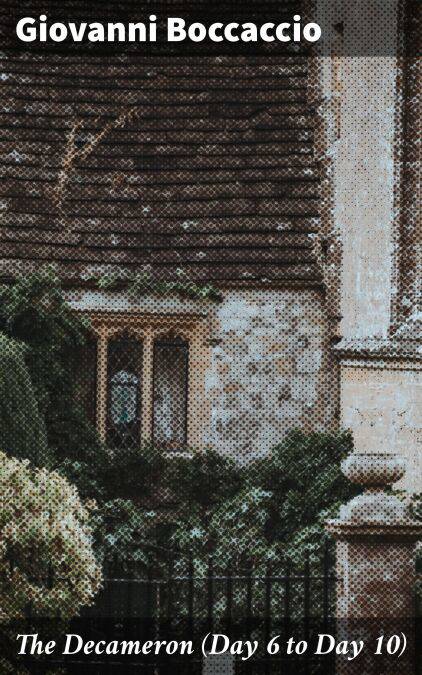
- Afhalen na 1 uur in een winkel met voorraad
- Gratis thuislevering in België vanaf € 30
- Ruim aanbod met 7 miljoen producten
- Afhalen na 1 uur in een winkel met voorraad
- Gratis thuislevering in België vanaf € 30
- Ruim aanbod met 7 miljoen producten
Zoeken
The Decameron (Day 6 to Day 10) E-BOOK
Containing an hundred pleasant Novels
Giovanni Boccaccio
E-book | Engels
€ 0,49
Omschrijving
In the final five days of Giovanni Boccaccio's masterwork, The Decameron, the narrative reaches a crescendo of wit, poignancy, and social commentary. Set against the backdrop of the Black Death, Boccaccio presents a series of interconnected tales told by a group of ten young people seeking refuge from the plague in a secluded villa. The stories from Days 6 to 10 reflect an intriguing blend of humor and tragedy, exploring themes of love, deception, and moral complexity, all delivered with Boccaccio's characteristic blend of realism and fantasy. This late medieval work not only encapsulates the human experience amidst crisis but also serves as a cornerstone of Italian literature, foreshadowing the Renaissance's exploration of individualism and human emotion. Boccaccio, a contemporary of Petrarch and a pivotal figure in the development of early humanism, was deeply influenced by the cultural shifts of his time. His experiences in Florence during the tumultuous period of the Black Death provide a personal lens through which he interrogates the nature of human relationships. Boccaccio'Äôs literary legacy is marked by his vernacular style, which democratized literature and expanded the boundaries of storytelling. The Decameron remains an essential read for those interested in the evolution of narrative form and the human condition. By engaging with Boccaccio's insights, modern readers are invited to reflect on their own perceptions of love, morality, and the societal constructs that shape human experiences. This collection not only entertains but also serves as a timeless commentary on the resilience of the human spirit.
Specificaties
Betrokkenen
- Auteur(s):
- Vertaler(s):
- Uitgeverij:
Inhoud
- Aantal bladzijden:
- 552
- Taal:
- Engels
Eigenschappen
- Productcode (EAN):
- 4064066232986
- Verschijningsdatum:
- 5/12/2019
- Uitvoering:
- E-book
- Beveiligd met:
- Digital watermarking
- Formaat:
- ePub

Alleen bij Standaard Boekhandel
Beoordelingen
We publiceren alleen reviews die voldoen aan de voorwaarden voor reviews. Bekijk onze voorwaarden voor reviews.








